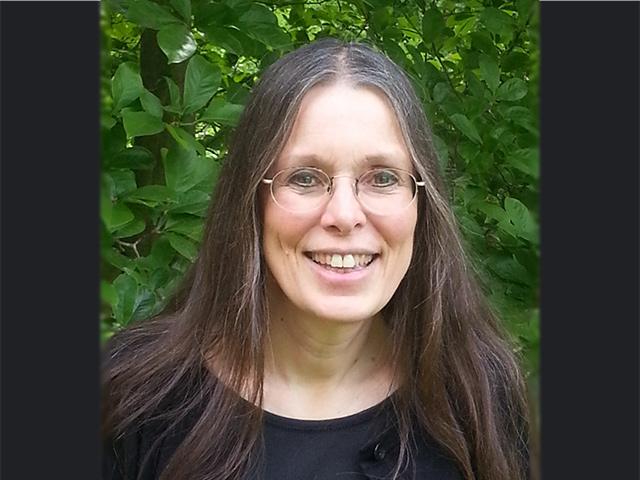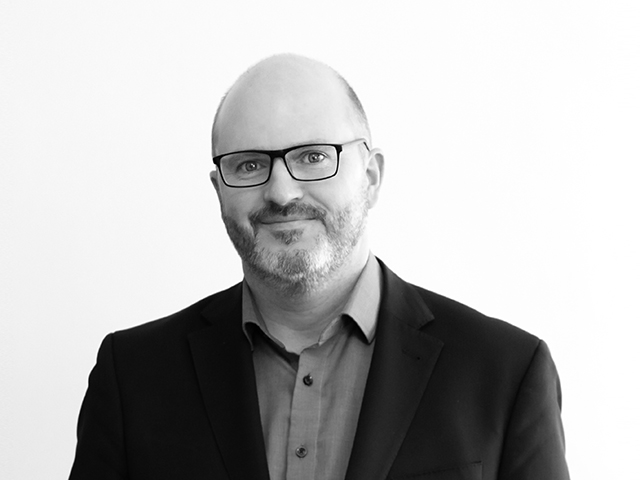About GCH
The EUROGRAPHICS Workshop on Graphics and Cultural Heritage (GCH) aims to foster an international dialogue between ICT experts and CH scientists to have a better understanding of the critical requirements for processing, managing, and delivering cultural information to a broader audience. The objective of the workshop is to present and showcase new developments within the overall process chain, from data acquisition, analysis and synthesis, 3D documentation, and data management, to new forms of interactive presentations and 3D printing solutions. Interdisciplinary approaches for analysis, classification and interpretation of cultural artefacts are particularly relevant to the event.
Key Dates
Research and short papers |
|
| Full papers submission deadline | |
| Short papers submission deadline | |
| Notification | 6 September 2021 |
| Camera ready | 27 September 2021 |
Posters |
|
| Submission deadline | 30 August 2021 |
| Notification | 13 September 2021 |
| Camera ready | 27 September 2021 |
| All times are 23:59 Anywhere on Earth (AoE) | |
Call for Papers
The 19th EUROGRAPHICS Workshop on Graphics and Cultural Heritage (GCH 2021) will engage practitioners and researchers across the world working at the interface of novel 3D digital technologies and cultural heritage. This year, circumstances depending, EG GCH will be run in a hybrid format, organised by the University of Bournemouth, UK. This will allow those who are able to attend the conference in person to do so, while those that can’t, especially if the pandemic is still raging at the time of the conference, will also not miss out on this exciting event.
GCH 2021 welcomes presentations of new research, projects and applications that demonstrate how computer graphics and other digital technologies are impacting cultural heritage research, preservation and dissemination and promoting sustainable cultural tourism. Specific sessions will be organised for active networking to seek new challenges and projects involving different stakeholders of the Heritage ecosystem. Hence, interdisciplinary and multidisciplinary approaches are particularly welcome to the event.
For the research community, GCH 2021 will provide, as always, an excellent scientific forum to exchange novel ideas and developments as well as to identify future research and application opportunities. For practitioners, GCH 2021 will provide a unique opportunity to feed into technical developments as well as to identify new techniques and ideas which can be transferred into practice.
The event seeks different types of contributions including:
- Research papers: original and innovative research (maximum 10 pages)
- Short papers: update of ongoing research activities or projects (maximum 4 pages)
- Posters: overview of activities or national/international interdisciplinary projects (500 words abstract)
- Panel sessions for multidisciplinary/industry-oriented projects
- Special sessions on Interactive Digital Narratives
Topics
Topics Contributions are solicited (but not limited to) in the following topics:
- Digitisation of Cultural Heritage resources, such as 3D scanning, motion capture, multispectral imaging, X-ray, terahertz imaging
- Visual data analysis, processing and fusion
- Digital libraries, archiving and long-term preservation of 3D documents
- Visualisation and virtual museums
- Multi-modal and interactive environments
- Spatial and mobile augmentation of physical collections with digital presentations
- Digital fabrication, including subtractive and additive methods such as 3D printing
- Technologies for providing sustainable tourism solutions
- Interactive Digital Narratives - a new special session for GCH 2021, possible topics include:
- Cultural Heritage applications of Interactive Digital Narrative including locative narratives and "Culture Games"
- Storytelling Technology for Cultural Heritage including authoring tools and Procedural Narrative Generation
- Theoretical Frameworks of interactive narrative in the cultural heritage domain and evaluation methodologies
Please read carefully the submission instructions and pay attention to the key dates to make sure you don’t miss out on participating in GCH 2021
Submissions
All accepted research and short papers will be published by the Eurographics Association and archived in the EG Digital Library.
The authors of up to five selected best papers will be invited to submit an extended version to the ACM Journal on Computing and Cultural Heritage (JOCCH).
We will seek to publish other contributions in collaboration with proposers of tutorials and special sessions.
Research and short papers
Please submit your work via the SRM conference management system: https://srmv2.eg.org/COMFy/Conference/GCH_2021
Log in with your existing SRM account, or create a new one using the relevant links.
Templates for preparing paper submissions can be found https://srmv2.eg.org/COMFy/Conference/GCH_2021/Instruction, in the SRM of Eurographics.
If you have any problems using the format template, please contact the programme chairs directly at chairs-gch2021@eg.org.
Posters
For posters, please submit a 500 word abstract using the same template as above.
Keynotes

Holly Rushmeier
Title: Tools for Making Sense of Cultural Heritage Data

Niall Ó hOisín
Title: Stories from the field
Scientific Programme
Here is the workshop programme
All Schedule times are listed in Local Time UK Time (GMT London)
BEST PAPERS (in no particular order)
- Riedone3D: a celtic coins dataset for registration and fine-grained clustering - Sofiane Horache, Jean-Emmanuel Deschaud, François Goulette, Katherine Gruel, Thierry Lejars, Olivier Masson
- Exploiting Neighboring Pixels Similarity for Effective SV-BRDF Reconstruction from Sparse MLICs - Ruggero Pintus, Moonisa Ahsan, Fabio Marton, Enrico Gobbetti
- Tangible Interfaces for VR Cultural Heritage Application - School House Virtual Museum - Vedad Hulusic, Linda Gusia, Nita Luci, Michael Smith
Note: The full proceedings will be available at: https://diglib.eg.org/handle/10.2312/2633101 starting on 3rd November. After 14th November, the proceedings will be available only to EG members.
For more information about Eurographics Open Access policy, please visit: https://www.eg.org/wp/eurographics-publications/guidelines/#licensing.
Thursday, 4th November
Tutorial
Safeguarding the Cultural Heritage of Dance
| 09:30 - 10:00 | Digital Dance Ethnography - Andreas Aristidou, University of Cyprus |
| 10:00 - 10:30 | Recovering 3D human motion - Xiaofang Wang and Céline Loscos, University Reims Champagne-Ardenne, Franck Multon, University Rennes 2 |
| 10:30 - 11:00 | COFFEE BREAK |
| 11:00 - 11:30 | Capturing Real 3D Scenes Using Multiple Volumetric Cameras - Joseph Parkins and Alan Chalmers, University of Warwick |
| 11:30 - 12:00 | Sifting through motion data - Efstathios Stavrakis, Algolysis Ltd |
| 12:00 - 12:30 | Mixed Reality challenges and advances in dance education - Bhuvan Sarupuri, University of Rennes 2 |
Special session
Moderator: Karina Rodriguez
IIIF-3D and interoperable frameworks for 3D data in CH
| This panel presents the developments of the IIIF-3D community group towards the development of an interoperable framework for researchers and practitioners to support uses of 3D data alongside other visual media. The presentation will include the group’s vision, technical roadmap, examples of use-cases, along with an open discussion amongst participants on the needs of the community. | |
| Speakers: Ed Silverton, Mnemoscene Ronald Haynes, Cambridge University |
Registration
Lunch
Welcome
Keynote 1: Holly Rushmeier
Coffee break
Paper session 1
Session chair (updated): Karina Rodriguez
Engaging with Cultural Heritage
| 15:30 - 16:00 | Capture, Processing and Presentation of Digital Cultural Items - Christopher Ferraris, Christos Gatzidis, Tom Davis, Charlie Hargood |
| 16:00 - 16:30 | Towards the Formal Teaching of CG Applications in Cultural Heritage for Computer Graphics and Animation Students - Eike Anderson, Valery Adzhiev, Oleg Fryazinov |
| 16:30 - 17:00 | Immersive Geometry-based and Image-based Exploration of Cultural Heritage Models - Arnau Farràs, Marc Comino Trinidad, Carlos Andujar |
| 17:00 - 17:30 | Interactive 3D Artefact Puzzles to Support Engagement Beyond the Museum Environment - Karina Rodriguez Echavarria, Myrsini Samaroudi, Jack Lloyd, Tim Weyrich |
Reception
Friday, 5th November
Paper session 2
Session chair: Fotis Liarokapis
Virtual Museums
| 9:30 - 10:00 | Tangible Interfaces for VR Cultural Heritage Application - School House Virtual Museum - Vedad Hulusic, Linda Gusia, Nita Luci, Michael Smith (best paper) |
| 10:00 - 10:30 | Virtual Dance Museum: the case of Greek/Cypriot folk dancing - Andreas Aristidou, Nefeli Andreou, Loukas Charalambous, Anastasios Yiannakidis, Yiorgos Chrysanthou |
| 10:30 - 11:00 | Triggering the Past: Cultural Heritage Interpretation Using Augmented and Virtual Reality at a Living History Museum - Kunal Shitut, Joe Geigel, Juilee Decker, Gary Jacobs, Amanda Doherty |
Coffee break
Short papers - Session 1
Session chair: Martin Kampel
| 11:30 - 11:50 | Fully Automatic Mechanical Scan Range Extension and Signal to Noise Optimization of a Lens-Shifted Structured Light System - Hasan Kutlu, Martin Ritz, Pedro Santos, Dieter Fellner |
| 11:50 - 12:10 | Reconstructing Dura-Europos From Sparse Photo Collections Using Deep Contour Extraction - Yifei Shen, Zeyu Wang, Qinying Sun, Anne Chen, Holly Rushmeier |
| 12:10 - 12:30 | Reimagining a 2D Painted Portrait as a Kinetic 3D Sculpture - Ellen Conlan Ellis, Valery Adzhiev |
Lunch
Demo / exhibition
Paper session 3
Session chair: Jassim Happa
Reconstruction
| 14:00 - 14:30 | Riedone3D: a celtic coins dataset for registration and fine-grained clustering - Sofiane Horache, Jean-Emmanuel Deschaud, François Goulette, Katherine Gruel, Thierry Lejars, Olivier Masson (best paper) |
| 14:30 - 15:00 | Automatic segmentation of archaeological fragments with relief patterns using convolutional neural networks - Elia Moscoso Thompson, Andrea Ranieri, Silvia Biasotti |
| 15:00 - 15:30 | Exploiting Neighboring Pixels Similarity for Effective SV-BRDF Reconstruction from Sparse MLICs - Ruggero Pintus, Moonisa Ahsan, Fabio Marton, Enrico Gobbetti (best paper) |
Coffee break
Panel session
Session chair: Christos Gatzidis
Digital Cultural Heritage - Present and Future Challenges
| This panel will focus on the industry perspective on current good practice, as well as issues, for digital cultural heritage. The panel will concentrate on the COVID pandemic and the challenges it posed and continues to pose for the field but also look towards the future and discuss what the future holds for digital cultural heritage, be it from a technological advances view point or from a stakeholder one. It is expected that the audience will be informed on wide ranging industry views for areas close to the workshop's main topics of interest; which could potentially be useful in terms of not just talking points but also areas of prospective academia/industry collaboration. | |
| Panellists: Niall Ó hOisín, Managing Director at Noho Ltd. Thomas Flynn, Cultural Heritage Lead & Community Manager, Sketchfab at Epic Games Farbod Shakouri, Co-founder, CEO at Phantom Tech |
Conference dinner
Saturday, 6th November
Short papers - Session 2
Session chair: José Luís Lerma García
| 9:40 - 10:00 | Invisible Heritage - Analysis and Technology Digital Platform - Dante Abate, Kyriakos Toumbas, Marina Faka |
| 10:00 - 10:20 | 3D for Studying Reuse in 19th Century Cairo: the Case of Saint-Maurice Residence - Vincent Baillet, Pascal Mora, Corentin Cou, Sarah Tournon-Valiente, Mercedes Volait, Xavier Granier, Romain Pacanowski, Gaël Guennebaud |
| 10:20 - 10:40 | 3D sound for digital cultural heritage - Adnan Mušanović, Bojan Mijatović, and Selma Rizvić |
| 10:40 - 11:00 | Bridging the discipline gap: towards improving heritage and computer graphics research collaboration - Jassim Happa, Taylor Bennett, Stefano Gogioso, Irina Voiculescu, Sally Crawford, Katharina Ulmschneider, David Howell, Christopher Ramsey |
Coffee break
Paper Session 4
Session chair: Stuart James
Art and Cultural Heritage
| 11:30 - 12:00 | Direct Elastic Unrollings of Painted Pottery Surfaces from Sparse Image Sets - Peter Houska, Stefan Lengauer, Stephan Karl, Reinhold Preiner |
| 12:00 - 12:30 | Challenges in the digitisation of a high-reflective artwork - Chiara Eva Catalano, Erika Brunetto, Michela Mortara, Corrado Pizzi |
Keynote 2: Niall Ó hOisín
Closing
Lunch
Committees
Organisation Committee
General Chair
Vedad Hulusic, Bournemouth University
Programme Chair
Alan Chalmers, University of Warwick
Industrial Session Chair
Christos Gatzidis, Bournemouth University
Local Organising Committee
Charlie Hargood, Bournemouth University
Michael Smith, Bournemouth University
Programme Committee
- Eike Anderson, Bournemouth University
- Mark Bernstein, Eastgate Systems, Inc
- Benedict Brown, Yale University
- Chiara Eva Catalano, CNR – IMATI
- Alan Chalmers, University of Warwick
- Christos Gatzidis, Bournemouth University
- Enrico Gobbetti, CRS4
- Mads Haahr, Trinity College Dublin
- Jassim Happa, Royal Holloway
- Sorin Hermon, The Cyprus Institute
- Charlie Hargood, Bournemouth University
- Vedad Hulusic, Bournemouth University
- Alfonso Ippolito, Università La Sapienza
- Stuart James, CHT – IIT
- Martin Kampel, TU Wien
- José Luis Lerma, Universitat Politècnica de València
- Fotis Liarokapis, Cyprus University of Technology
- Ricardo Marroquim, TU Delft
- Fabio Marton, CRS4
- Asla Medeiros, Fundaçao Getulio Vargas
- Michela Mortara, CNR-IMATI
- Sofia Pescarin, CNR-ISPC
- Patrick Reuter, University Bordeaux, Inria Bordeaux
- Selma Rizvic, University of Sarajevo
- Karina Rodriguez Echavarria, University of Brighton
- Holly Rushmeier, Yale University
- Pedro Santos, Fraunhofer IGD
- Tobias Schreck, TU Graz
- Roberto Scopigno, CNR-ISTI
- Michael Weinmann, University of Bonn
- Sebastian Zambanini, Computer Vision Lab, TU Wien
Workshop Venue
Event venue location info and gallery
Bournemouth University
This year, circumstances depending, the conference will be held in Bournemouth, which is a well-known seaside town in the UK with a very strong touristic resort tradition. The conference will be held at Bournemouth University, with the town itself being easily accessible by major airports such as Heathrow and Gatwick by bus and train (within 2 to 3 hours). Related conference social events are planned and more details on these will be confirmed when they become available.
Registration
IMPORTANT NOTE
For each accepted contribution, at least one author must register to the Workshop no later than 6 October 2021.
Contributions without a registered author cannot be included in the proceedings.
In person
Non-member & non-student
£370
In person
Non-member & student
£320
In person
EG member & non-student
£320
In person
EG member & student
£270
Online
Presenter & non-member
£80
Online
Presenter & EG member
£60
Online
Non-presenters
FREE
Contact Us
For all queries regarding EG GCH 2021 please contact the following chairs.








